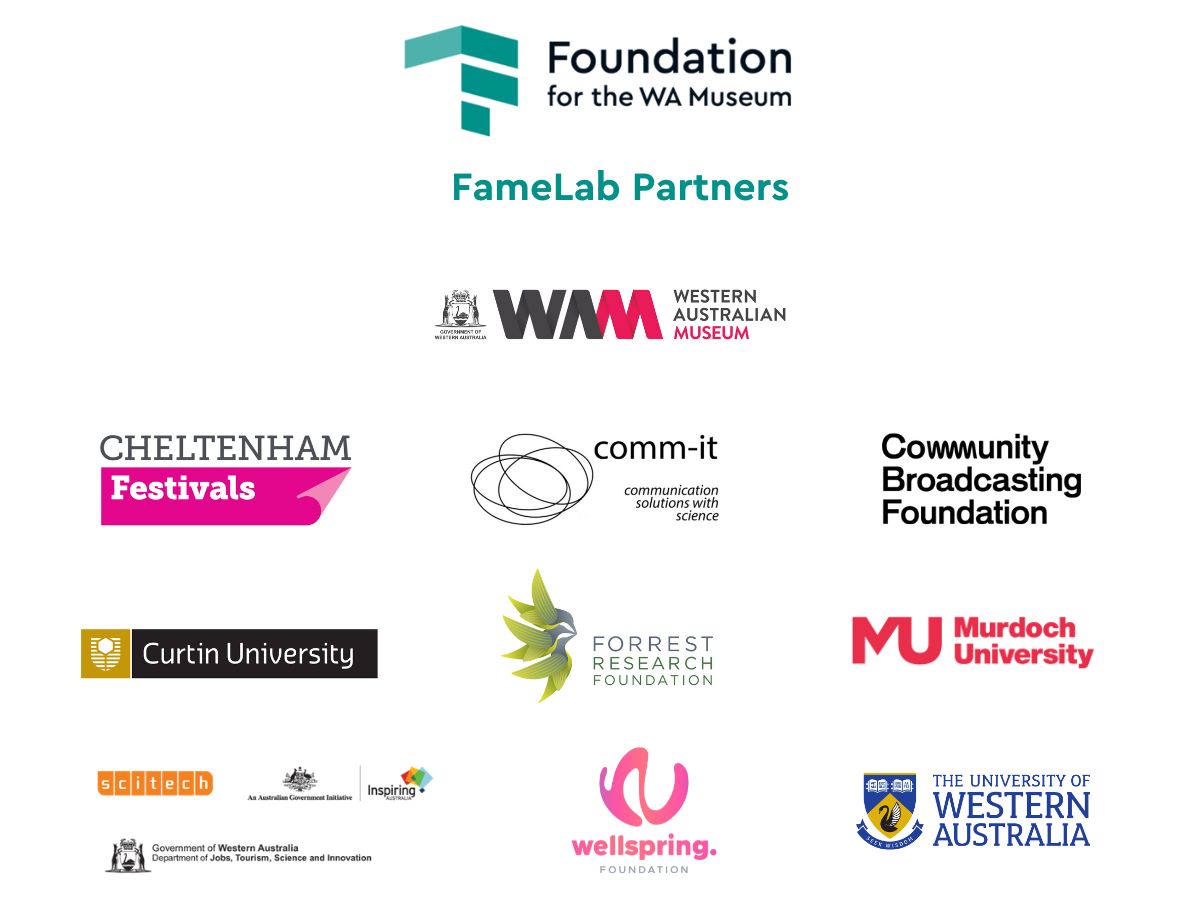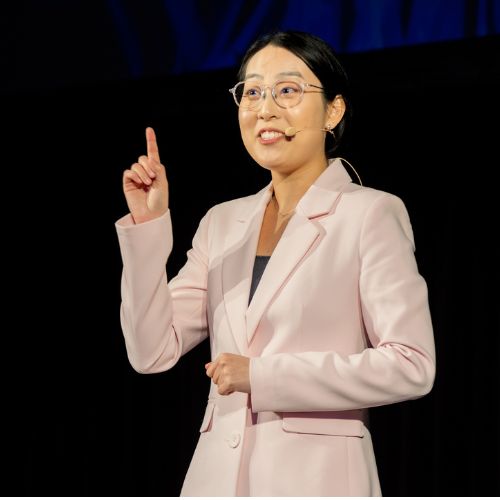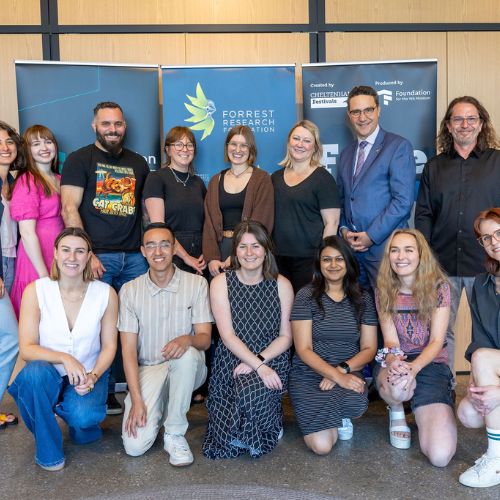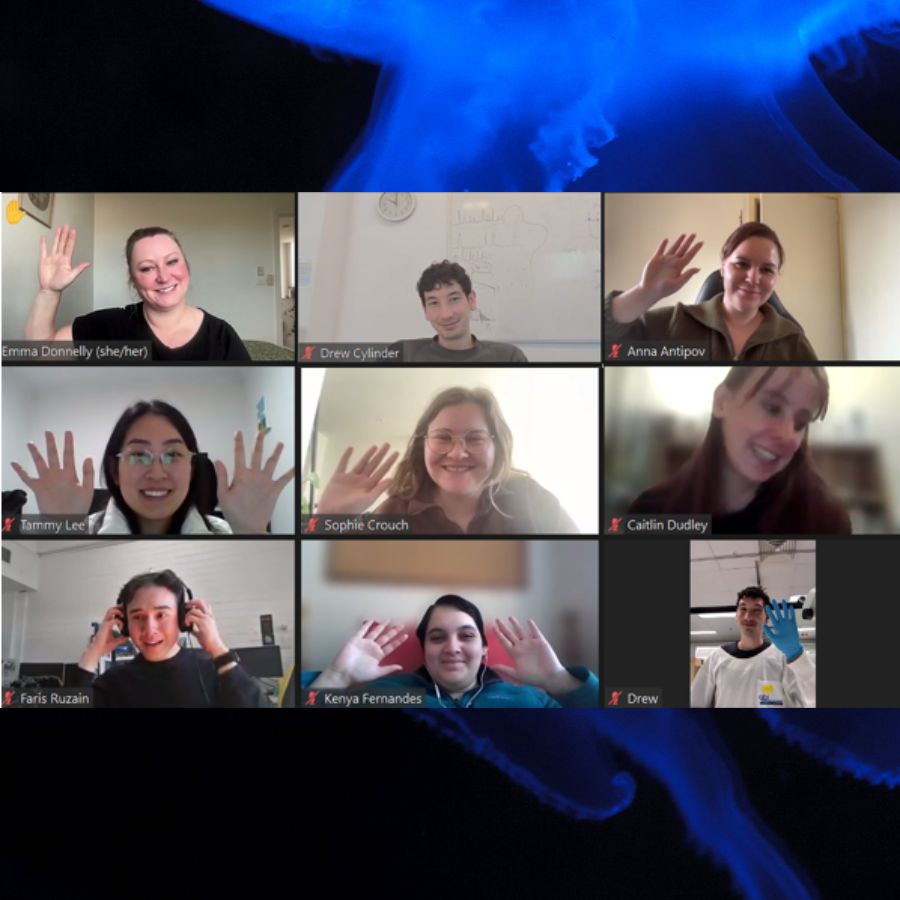The FameLab Australia Final will take place at the WA Museum Boola Bardip on 18 September 2025, and the twelve finalists have been selected. Presenting their research across a wide range of science, including forensics, agriculture, archaeology and biomaterials, the twelve finalists will represent leading universities and research organisations from around the country.
120 applications were received in FameLab Australia 2025 with 55 being selected to compete in regional semi-finals held online from 30 June to 3 July. Semi-finalists included researchers from every state and territory in Australia. The four semi-finals were judged by expert panels comprising accomplished scientists, science communication experts, and awarded science speakers.
The judges have selected the twelve best early career science communicators from around the country to compete in the live final.
Victoria semi-final
Winner: Faris Ruzain
Runners-Up: Sophie Crouch and Aayushi Khillan
Western Australia semi-final
Winner: Tammy Lee
Runners-Up: David Stewart-Yates and Nimllash Thangam
New South Wales, Australian Capital Territory, Northern Territory, and Tasmania semi-final
Winner: Kenya Fernandes
Runners-Up: Minduli Withana and Riley Easton
Queensland and South Australia semi-final
Winner: Caitlin Dudley
Runners-Up: Anna Antipov and Drew Cylinder
The contestants work across a variety of research fields and represent universities and research institutions from across the country.
|
Finalist |
Focus |
Field of Research |
University/Institution |
State |
|
Aayushi Khillan |
Pain management in children with cerebral palsy |
Paediatric Neurodisability |
Murdoch Children's Research Institute |
VIC |
|
Anna Antipov |
Investigating alternatives to antibiotics in regenerative medicine |
Physiology |
University of South Australia |
SA |
|
Caitlin Dudley |
The impact of the environment on flowering traits of crops |
Plant Science/Genetics |
Queensland Alliance for Agriculture and Food Innovation |
QLD |
|
David Stewart-Yates |
Forensics of crime scenes |
Forensic Science |
Murdoch University |
WA |
|
Drew Cylinder |
How general anaesthetics disrupt neurotransmitter release |
Neuroscience |
University of Queensland |
QLD |
|
Faris Ruzain |
Creating protocols for dating rock art |
Archaeological Science |
University of Melbourne |
VIC |
|
Kenya Fernandes |
Understanding microbes and their impact on bee health |
Microbiology |
The University of Sydney |
NSW |
|
Minduli Withana |
The immune system and multiple sclerosis |
Neuroscience |
University of Technology Sydney |
NSW |
|
Nimllash Thangam |
Pathogens in lentil crops
|
Crop Pathology |
Curtin University |
WA |
|
Riley Easton |
The role of micro-RNA in viral infections |
Viral Immunology |
University of Technology Sydney |
NSW |
|
Sophie Crouch |
Understanding and predicting the properties of biomaterials |
Chemistry |
Monash University |
VIC |
|
Tammy Lee |
Viability of embryos with atypical appearances and behaviours |
Embryology |
The University of Western Australia |
WA |
Wayne Lubbe, the Foundation for the WA Museum’s FameLab Project Manager, stated “Every state and territory was represented in FameLab this year, enabling FameLab to really achieve its ambitions of uncovering, training and showcasing the best new voices in science across Australia. Excellent science communications skills are essential to engage the general public and raise awareness of the cutting-edge science research being done in our country, and FameLab provides early career researchers with those skills.
Through FameLab, inspiring young scientists from a diverse range of fields share their passion for solving some of our biggest challenges, and demonstrate the importance and impact of the work they do. FameLab is an ideal platform linking our broader community with science in highly engaging, easy-to-understand, and entertaining presentations, while presenting our youth with brilliant new role models from the world of STEM.”
He added, “Our 12 finalists have excelled in their ability to embrace the extensive science communication training provided, and convert that training into compelling science storytelling. FameLab has grown steadily to become the essential science communication training program and competition in Australia.”
The finalists will receive further masterclass training and media training, including from FameLab Australia National Training Partner Comm-It, before travelling to Perth in September for an immersive 1.5-day science communication workshop hosted by Forrest Research Foundation They will compete at the FameLab Australia Final on 18 September 2025, held live on stage at the WA Museum Boola Bardip which will also be live-streamed. Tickets to the Final are now on sale.
The Australian FameLab winner will progress to represent Australia in the international FameLab final in November 2025.
FameLab is the world’s leading public-facing science communication competition and training program, created by Cheltenham Festivals (UK). Since 2007, the competition has gone global in over 40 countries, with more than 40,000 scientists participating to date. FameLab is recognised as being a powerful means to identifying and nurturing new voices in science, with previous alumni embarking on high-profile careers in science communication and the media.
The Foundation for the Western Australian Museum is the producer and country host organisation of FameLab Australia. The focus of FameLab Australia is to promote excellence in science communication for early career STEM researchers in universities, government and industry. The competition is open to early career STEM researchers currently completing postgraduate studies or within five years of completing their postgraduate degrees.
FameLab Australia is supported by the Western Australian Museum, Cheltenham Festivals, Comm-It – Communication Solutions with Science, Community Broadcasting Foundation, Curtin University, Forrest Research Foundation, Murdoch University, The University of Western Australia, and Wellspring Foundation. FameLab is also supported by the Western Australia Government through Inspiring WA.








